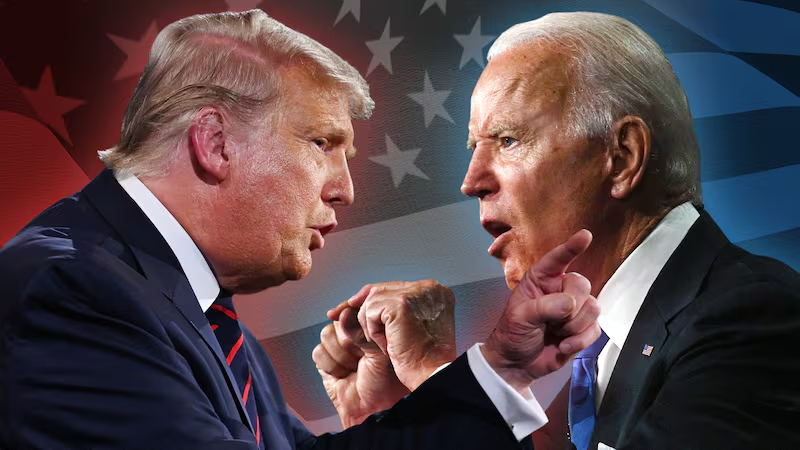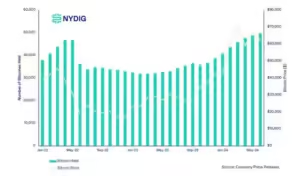How Bitcoin Will Rise on War Expenses and US Presidents’ ‘Spending Like Drunken Sailors’

QUICK TAKE
- Bitcoin’s future is tied to government spending and economic policies.
- War expenses and increased national debt are key drivers for Bitcoin’s potential rise.
- Influential voices in crypto advise focusing on long-term trends.
Bitcoin has been trading within a narrow range of $73,000 to $59,000 for over three months, an unusually stable period for such a historically volatile asset. This extended stability has led market participants, including PayPal co-founder Peter Thiel, to question whether Bitcoin has lost its momentum. However, prominent figures in the crypto world, such as Mike Novogratz and Arthur Hayes, argue that Bitcoin’s long-term prospects remain strong, especially in the context of escalating government spending and war expenses.
Government Spending and Bitcoin’s Future
Mike Novogratz, CEO of Galaxy Digital, recently emphasized the impact of continuous government spending on Bitcoin’s potential growth. Speaking to CNBC, Novogratz pointed out that Bitcoin’s future is secure as long as the government continues to “spend like drunken sailors.” The U.S. budget deficit is expected to surge by 27% next year, reaching $1.9 trillion, according to the Congressional Budget Office. Key contributors to this increase include student loan relief, healthcare costs, banking crisis resolutions, and substantial military aid to Ukraine and Israel.
Novogratz highlighted that the issue of excessive government spending is not unique to the current administration. He noted that former President Donald Trump also significantly increased government spending. “These have been the two worst presidents in terms of increasing debt, in the history of our country,” Novogratz remarked, referring to both Trump and Biden.
Bitcoin as a Hedge Against Inflation
Bitcoin was designed with a fixed supply cap of 21 million coins, positioning it as a potential hedge against government spending and monetary debasement. As governments continue to spend heavily, the value of fiat currencies may decline, making Bitcoin an attractive store of value.
Arthur Hayes, co-founder of BitMEX, echoed Novogratz’s sentiments in a recent blog post, particularly focusing on the impact of rising U.S. military expenses. Hayes suggested that the current focus on Ukraine and Israel is likely to drive military spending even higher. “Nations are turning inwards and ensuring all facets of the national economy are ready to support the war effort,” Hayes wrote. He warned that savers might be compelled to finance their nation’s wartime expenditures through measures like forced bank lending to specific industries or mandatory purchases of government bonds at below-market rates.
The Role of Inflation
Hayes argued that such government policies would inevitably lead to inflation, eroding people’s savings. He advised that the best way to protect one’s wealth in this scenario is to invest in assets outside the traditional financial system, like Bitcoin. “The only way to escape, assuming no capital controls are erected, is to buy a store of value outside of the system like Bitcoin,” Hayes stated.
Novogratz also underscored the importance of Bitcoin as a core holding in times of unchecked government spending. He asserted that Bitcoin makes perfect sense as a long-term investment until government spending is brought under control.
Historical Context and Bitcoin’s Design
Bitcoin’s fixed supply is one of its most significant features, designed to counteract the inflationary pressures often associated with fiat currencies. This characteristic has led many to view Bitcoin as “digital gold.” In times of economic uncertainty and rising government debt, Bitcoin’s appeal as a hedge against inflation grows stronger.
The Broader Economic Impact
The ongoing debate about government spending and its implications for Bitcoin highlights a broader economic issue. The U.S. government’s increasing debt levels and continuous spending on various fronts, including military engagements, have far-reaching consequences. Investors and savers are left to navigate an environment where traditional savings vehicles may no longer offer the same security as they once did.
Conclusion
As Bitcoin continues to hover within its current price range, the underlying factors driving its long-term potential remain firmly in place. Government spending shows no signs of slowing down, regardless of which political party is in power. Both Novogratz and Hayes advise Bitcoin investors to adopt a long-term perspective, recognizing that Bitcoin’s value proposition as a store of value becomes even more compelling in an era of rampant government spending and inflationary pressures.
The interplay between economic policies, war expenses, and Bitcoin’s unique characteristics suggests that the cryptocurrency’s role in the financial ecosystem will continue to evolve. As governments around the world grapple with rising debts and economic challenges, Bitcoin’s potential as a hedge against inflation and a store of value may become increasingly significant. Investors are encouraged to stay informed and consider the broader economic trends that influence the cryptocurrency market.



